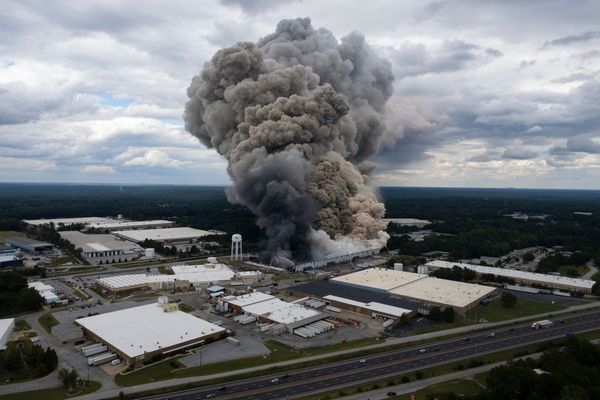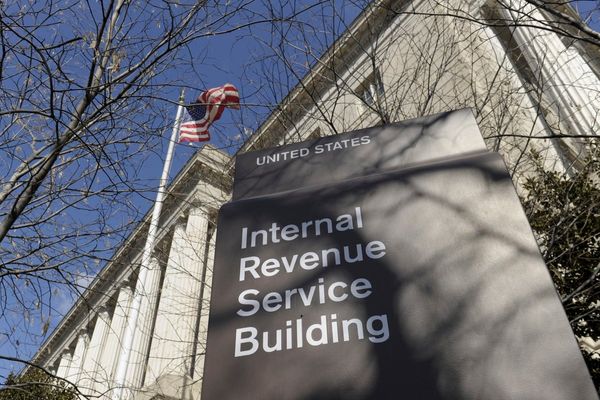With the West's eyes on Russia's strategy, manoeuvres and human rights abuses in Ukraine, is it missing what the country is up to on another continent?
In the last few months, Russia's Foreign Minister Sergei Lavrov has visited a list of African countries: Angola, Eswatini (formerly Swaziland), Eritrea, Mali, Mauritania, South Africa and Sudan.
With Cold War-like lines hardening around the world, Lavrov used the visits to push Russia's narrative on Ukraine and slam the West.
"Despite the anti-Russian orgy orchestrated by Washington, London and Brussels, we are strengthening good neighbourly relations in the widest sense of this concept with the international majority," he said in February after an Africa trip.
But behind the photo ops and handshakes, Russia is playing a much deeper and far less public role there.
Julia Stanyard, a senior analyst with the non-government organisation Global Initiative Against Transnational Organised Crime (GI-TOC), says Russia's most significant presence in Africa is not the Russian state, but a shadowy Russian private company.
"[The Wagner Group] has become the most influential Russian actor in Africa," a new report co-authored by Stanyard states.
This Kremlin-backed group is doing the dirty work of the Russian state across Africa and getting rich along the way.
It's now "an extension or a low-cost outsourcing of Russia's military and diplomatic engagement in the continent", Stanyard tells ABC RN's Sunday Extra.
More than mercenaries
Since the start of the Ukraine conflict, the Russian private company Wagner Group has been making headlines for deploying its mercenaries there.
As the GI-TOC report puts it: "Controlled by a historically close ally of Vladimir Putin, [oligarch] Yevgeny Prigozhin, Wagner has a seemingly mutually beneficial relationship with the Russian state".
Or as Stanyard says: "In sanctions designations by Western countries ... [Wagner] is often described as a proxy of the Russian state. And in many ways, that is true".
The Wagner Group is best known as a mercenary business, with troops in countries around the world, supporting Russian state interests.
But that's not all they do. Far from it. Stanyard portrays Wagner as a sophisticated "ecosystem" or "a network of organisations and companies" out for political and economic gain, particularly in Africa.
First up, politics. The group has "engaged politically in a greater number of countries in Africa than it has militarily".
Through its connected "political strategy organisations", Wagner has the ears of African leaders, interferes with elections and runs anti-Western, pro-Russian disinformation campaigns. Stanyard goes as far as calling it a "political entity" on the continent.
Then there's the economic side of its operations.
Wagner is linked to "a network of companies, primarily mining entities" that are bringing in large sums of money. In some cases, "access to extractive resources has been a quid pro quo arrangement with African governments in return for Wagner's provision of mercenary support".
Stanyard stresses that this includes illegal activities, or "widespread criminal activity".
For example, she says in Sudan, "they've been able to negotiate access to a lot of gold mining sites … [and] they have conducted really industrial-scale gold smuggling out of the country".
In doing so, Wagner has "evaded sanctions and bolstered the economic profile of Prigozhin, and ultimately Russia as well".
"It is really a rapacious economic aim – to get control and benefit from natural resources in the countries that they operate."
'State capture'
From a military perspective, Wagner has been in Africa since 2017. That year, it deployed troops to Sudan, and shortly after went into the Central African Republic (CAR). It's since deployed to Libya, Mali and had a short-lived intervention in Mozambique.
These military interventions "have largely been in the service of weakened autocratic governments seeking support in fighting insurgencies, rebel groups or civil wars".
The Central African Republic shows what Wagner and the Russians are capable of, with Stanyard going as far as calling it "state capture".
"In exchange for access to natural resources – principally diamonds and gold – Wagner has provided President Faustin Archange-Touadéra with military and political support, which has proven pivotal in sustaining his embattled presidency against an onslaught of rebel groups," the report says.
Over the years, Wagner has developed an "almost independent role in guiding the Central African Republic's military operations", Stanyard says.
They've also been involved with the media there, with Stanyard citing one radio station that's essentially become a Wagner mouthpiece, spreading "propaganda, disinformation campaigns and pursuing the Russian narrative in the country".
"[The CAR is] the most developed example of the Wagner business model in Africa, because it covers these main three prongs to their strategy: The military, the economic and the political."
And this is just one of many countries where Wagner is accused of abuses. A group of UN experts say it was involved in "grave human rights abuses and violations of international humanitarian law" alongside local troops.
Madagascar
Then there's a country like Madagascar, where Wagner doesn't have a military engagement, but is involved in many other ways.
"Madagascar doesn't have an ongoing conflict in the same way [as those] that Wagner has taken advantage of in some of the other countries," Stanyard says.
Instead, Wagner has been engaging in political interference, particularly in the 2018 presidential election, when a group of Russian political strategists descended on the country.
"Wagner-linked political operatives … provided direct financial and strategic support to candidates which were deemed friendly to Russia," Stanyard says.
She says they also set up social media disinformation campaigns, facilitated protests and supported certain media outlets, which were intended to "generate this impression of there being these spontaneous political campaigns taking place there".
It paid off. After the election, Stanyard says a new mining company was set up in partnership with a state-owned mining company, which was linked back to Wagner.
Displacing the West
So does the Wagner Group have any overarching aims – and how does this relate to Russia's official interests?
"One of the stated aims of the organisation is to displace Western interests in Africa … There was a strategy document from inside the organisation that was leaked a few years ago which said as much," Stanyard says.
"And it has been surprisingly effective."
She points to Mali, where French troops had a presence for a number of years, helping the government there fight Islamist militants. But after tensions with the government and the public, France has withdrawn and been replaced with Wagner troops.
"It's become a key political question for some African countries now – where do they choose to have these partnerships?" Stanyard says.
"By providing troops, with no conditionality to these governments about human rights considerations, which you would get with engaging with Western or European powers, Wagner's really been able to bolster its profile in Africa."
RN in your inbox
Get more stories that go beyond the news cycle with our weekly newsletter.







